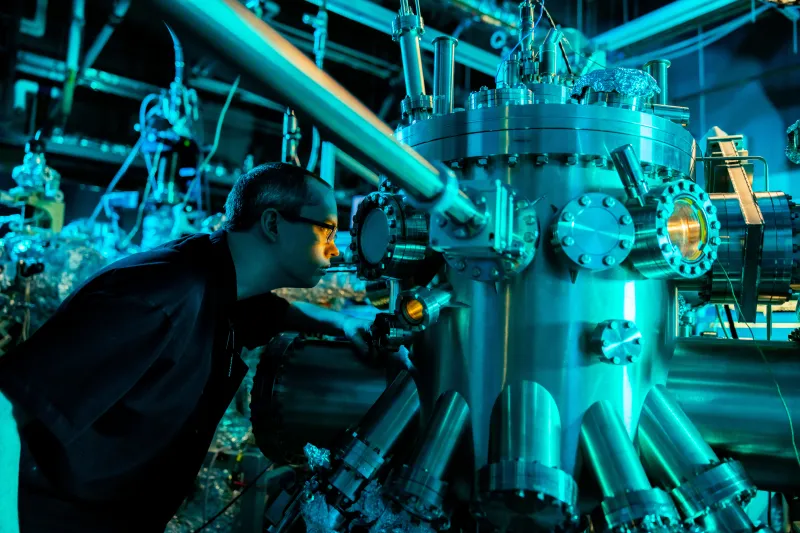The Shull Wollan Center is dedicated to promoting excellence in advancing the application of neutrons to the forefront of science and industry and to the training and education of future researchers.
News & Highlights
-
UT awarded National Science Foundation Materials Research Science and Engineering Center
The University of Tennessee, Knoxville, has received a prestigious Materials Research Science and Engineering Center from the National Science Foundation (NSF) to spark discoveries that will lead to new industries in clean energy, computing and national security.
-
Physical Insights Into Biological Memory Using Phospholipid Membranes
We demonstrated that electrical stimulation can modify the characteristics of the lipid membrane, indicating a novel mechanism for storing memory in the human brain.
-
Cations Control Lipid Bilayer Memcapacitance Associated with Long-Term Potentiation
Long term potentiation (LTP) an important feature of learning and memory in the brain is sensitive to different salts (KCl, NaCl, LiCl, and TmCl3), with LiCl and TmCl3 having the most profound effect in depressing LTP, relative to KCl.
-
Workshop on a Neuromorphic Biomaterials Initiative – August 23, 2023
The emerging field of Neuromorphic Biomaterials combines principles from materials science, biology, and neuroscience to develop materials that can enhance neural interfaces, regenerative medicine, and neuroengineering applications. These biomaterials can be used to improve the performance of neuroprosthetic devices, neural implants, and tissue-engineered constructs. The purpose of this workshop is to bring together local experts…


